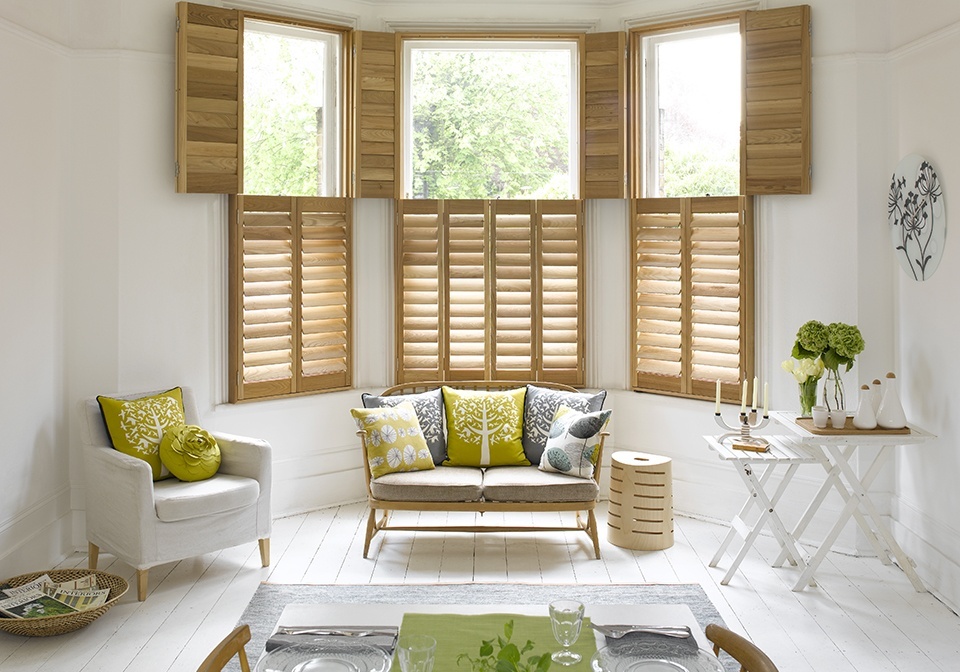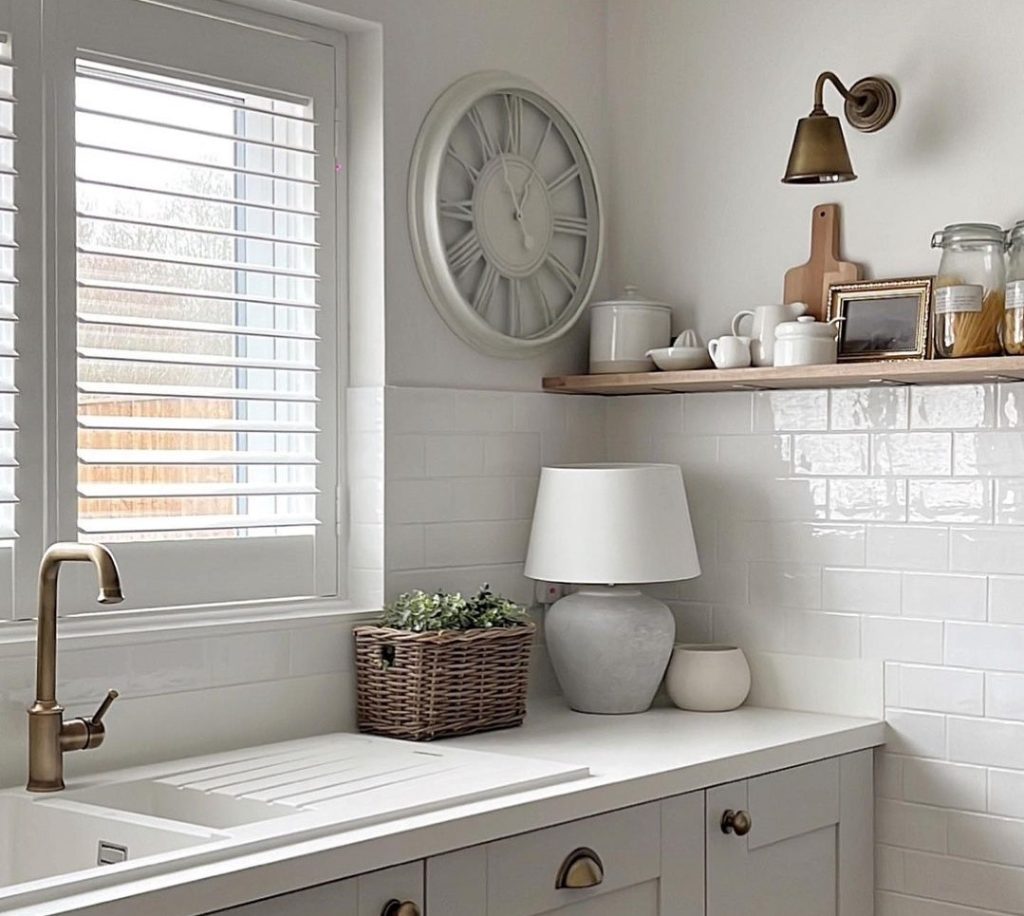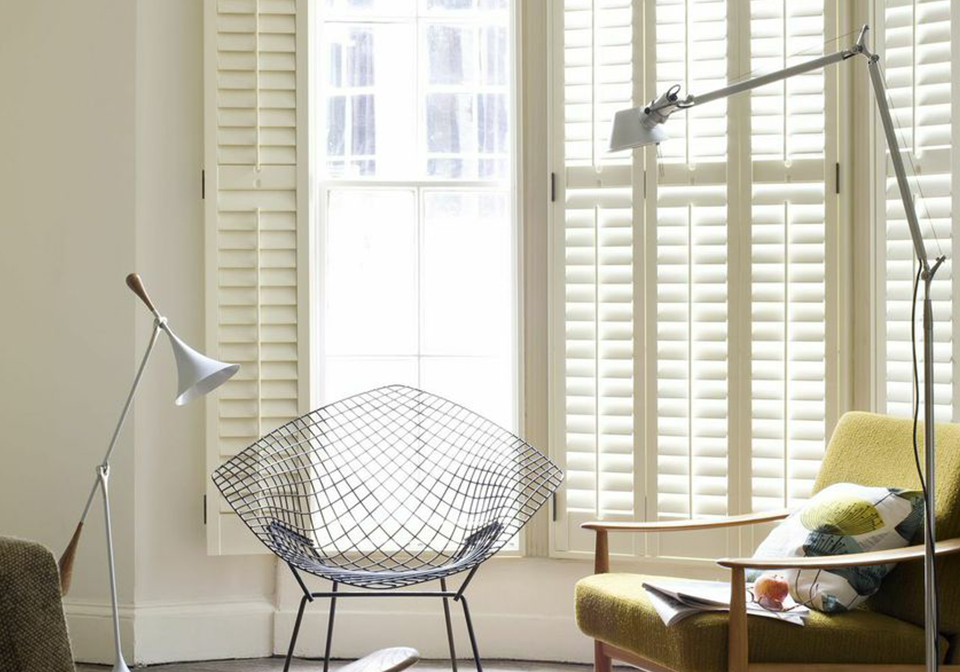Most windows will benefit from the use of some kind of window dressings or coverings. However, there are a few rare occasions when you might want to leave your windows uncovered. In particular if you want to make the most of natural light. Especially if you have a private outlook so you don’t have to worry about nosey neighbours or opportunist passerby’s.
But for the majority window dressings provide much needed privacy and light control. You have two main categories of window dressings. There are hard window dressings or soft ones. In the hard dressings category, you have your blinds and shutters. Whilst in the soft ones you have curtains, drapes and sheers.
You might be debating which would be the best window dressings to use in your home. If that’s the case read on for some benefits of each type.
Hard Window Dressings
Control Temperature
Shutter blinds are a good choice when it comes to keeping the heat out of your house in summer. Shutters are an excellent way to control the temperature in each room. Heatwaves in this country can be unbearable because we do not have air conditioning as standard in our homes. Shutters let you enjoy ventilation without the direct sunlight heating up your room.
In winter they also work well as you can keep warm and cosy as you don’t lose your warm air. This will stop you spending as much on heating. Apparently, shutters can reduce heat loss by over 50%, which is an impressive figure.
Privacy
You can choose to have café style shutters to give you privacy at eye-level height. This still allows plenty of natural light if that is a priority for you. Or you could choose tier on tier blinds and leave the bottom section closed and just open the top. That way you can when you feel inclined you can close it all to give you complete privacy as if you had full height shutters.

Noise Reduction
If you live on a noisy street with regular traffic and lots of pedestrians, then it’s well worth looking at options for noise reduction. Shutters are made from quite a thick material so are good at blocking sound waves.
Choosing shutters will help you get a more peaceful sleep. My wife and I lived in a very busy street in Southampton when we first got together. We only had thin curtains and because of this we regularly had disrupted night’s sleep. People would come past late at night shouting and wake us up. I wish we had looked into shutters then because we were both tired and grumpy. My wife was newly pregnant, and she could have done with more rest.
Easier to clean

Shutters are very durable and hard wearing. They are also much easier to keep clean with just a damp cloth, whereas with curtains or drapes they would need to be dry cleaned. As curtains collect a lot of dust it is advised they are washed every three to six months. However, because they are tricky to wash how many of us actually do that. Consequently, I would say shutters are a more hygienic option.
Better For Allergies
You will also have dust mites living in curtains, so you can avoid that with shutters. My wife is asthmatic, therefore, I always want to look at options that are better suited for managing her allergies.
Don’t Retain Smells
Shutters do not hold onto smells, like fabric does. Curtains can hold on to odours especially if you smoke, have pets or cook strong smelling foods all of those smells get ingrained in the fabric.
Soft Window Dressings
Privacy
Curtains and drapes offer privacy. However, they do not give you quite the same amount of light control that you can enjoy with shutters.
Welcoming Feel

As curtains are made from a soft material, they can be quite welcoming and cosy in your home.
Control Temperature
Soft window dressings still help control temperature. You can choose to invest in thermal curtains to retain even more heat in winter.
In conclusion
There is a lot to consider when choosing the best window dressings for your home. My personal preference is to have hard window dressings such as blinds or shutters. If you do prefer soft window dressings, then you can get around some of the disadvantage of them. For example, sprinkling baking soda on curtains can help with any retained odours. For dust mites you can use a dust mite stopper spray in between washes.

